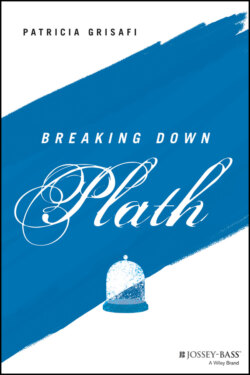Читать книгу Breaking Down Plath - Patricia Grisafi - Страница 11
A SCHOLARSHIP GIRL
ОглавлениеPlath started at prestigious Smith College in 1950 on a scholarship sponsored by writer Olive Higgins Prouty. Plath was keenly aware of class stratifications at the elite, all‐women's college. She put intense pressure on herself to be perfect. Writing in her journal on October 1, 1957, Plath addresses a “demon” who is in reality her “murderous self” who demands perfection: “Not being perfect hurts,” she writes. “This is the month which ends a quarter of a century for me, lived under the shadow of fear: fear that I would fall short of some abstract perfection: I have often fought, fought & won, not perfection, but an acceptance of myself as having a right to live on my own human, fallible terms” (Unabridged Journals, 2000, p. 618).
This need to be perfect is a personality characteristic, but it's also a value very much encouraged during Plath's life. Throughout the 1950s, as we will learn further in the next chapter, in Plath's social circles there was a lot of stress on appearances and conformity—especially for women. Sylvia, always a savvy observer of double standards, participated in many of the rituals of college life at this time while criticizing them in her writing. She went to formal dances, had many dates and friends, and immersed herself in studies and activities. Well‐liked, incredibly bright, and fiercely ambitious, Sylvia Plath looked like she had everything going for her.
But mental illness is insidious. For someone with a predisposition to depression, as Plath had, it can feel like everything is wrong and will never get better. Mental healthcare was much less sophisticated in the 1950s than it is today, and conversations about mental health in general were often conducted in hushed tones, as if struggling with one's emotions was something about which to be ashamed. The stigma of mental illness prevented many people from getting the proper treatment. Women especially, who often were dismissed by male doctors, felt disempowered when it came to medical care, especially gynecological and psychiatric care.
Plath grappled with suicidal ideation and feelings of depression and worthlessness for most of her adult life. Her mental health struggles formed some of her most powerful poems. An understanding of Plath's mental health—and how she conceived of it—is valuable to any study of her work, but we need to be careful not to pathologize her or her poetry.
